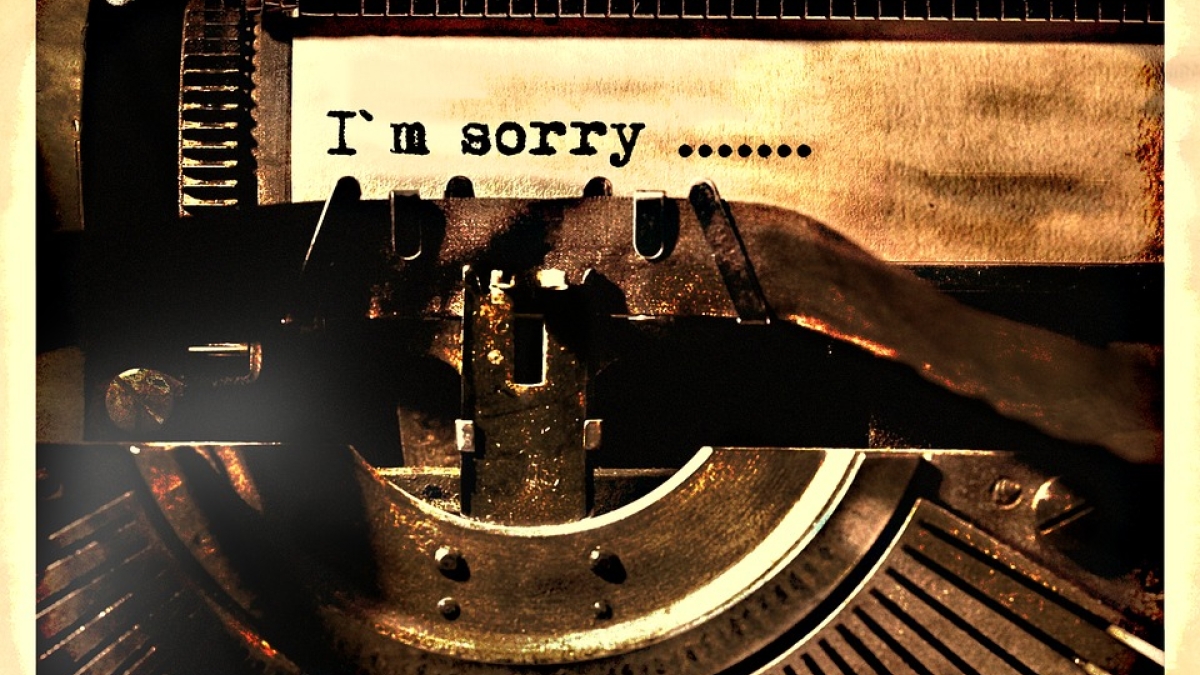Celebrity 'fauxpologies' can backfire with audiences, says ASU professor

“Today” show host Matt Lauer expressed “sorrow and regret for the pain he caused to others” when sexual misconduct allegations were leveled at him last week, but added that some of the characterizations and stories about him were untrue.
When humorist Garrison Keillor was recently accused of improper behavior by a colleague, he said he made amends. But in the same statement, he also said getting fired was a “real distinction in broadcasting” and he “waited 50 years for the honor.”
These types of “fauxpologies” can backfire with audiences as Americans contemplate the damage caused by public figures facing harassment claims, according to Dawn Gilpin, an associate professor in Arizona State University's Walter Cronkite School of Journalism and Mass Communication.
“The real purpose of the act … is about beginning the process of healing,” said Gilpin, who specializes in public relations and social media, including crisis management and organizational identity and reputation.
Dawn Gilpin
Question: With the recent spate of sexual harrassment and abuse cases emerging in the media, are we seeing a change in the way the accused are responding? If so, is this good?
Answer: A lot of powerful individuals are realizing that, in this cultural moment, they can no longer simply brush off these kinds of accusations and expect them to fade away over time. There is far more scrutiny, and the emphasis of the scrutiny has shifted from the accusers to the accused, who in the past have often been shielded by power and the accumulated goodwill of their associates.
I do believe it’s a good thing. It means we are finally starting to acknowledge the massive toll we pay, collectively, when we build a world in which women and other targeted populations — and yes, sometimes men — are frequently unable to live and work to the best of their ability. This can result either from material obstruction or the psychological pressure of having to function in a threatening environment. The only way we can overcome this problem is by first being willing to recognize its existence. It’s a painful but necessary part of the process.
Q: The recent cases are seen by some as a seismic shift in the culture. Does that require a different response from those accused or charged?
A: Context is everything in communication. Anyone who speaks in public has to know how to “read the room,” develop a sense of the overall mood of the audience, and be able to adapt the tone and content accordingly. That is especially true when dealing with any kind of sensitive subject matter, which is obviously the case when it comes to sexual misconduct. Public figures right now are generally expected to take the accusations seriously and handle them with respect, so there is less tolerance for dismissive or vague reactions than there may have been in the past.
We also have a communication landscape today that distributes information and other messages very far, very fast. A high-profile accusation of sexual misconduct will be shared and retweeted far and wide within minutes. That means any clumsy phrasing or otherwise inadequate response will also gain traction almost immediately, and it can be difficult to recover from a negative first impression. So there is the challenge of having to craft a sincere, effective response very quickly.
Q: We've seen some political figures aggressively deny accusations rather than offer apologies. Is that tactic smart or foolish?
A: Interestingly, recent research about organizational crisis response has shown that denial and apology are essentially equivalent, in terms of reputation management. If anything, denial may have an edge when it comes to returning to prior approval levels among stakeholders.
But it would be a mistake to extrapolate from this kind of research, usually conducted on corporations, to cases of individuals accused of sexual harassment or worse. This is especially true when multiple victims have come forward with public accounts. As has been widely reported by now, false accusations are rare, for a variety of reasons. What is more likely is a divergence of memory or interpretation, which may also be the result of shifting societal norms and confusing intention with impact. Those factors don’t diminish the significance of these events and the harm they may have caused, however, so I think categorical denial is unlikely to be rewarded in the current climate.
"Denial and apology are essentially equivalent. However … categorical denial is unlikely to be rewarded in the current climate."
For example, Congressman John Conyers of Michigan announced that he is retiring, effective immediately, amid a flurry of allegations of sexual misconduct spanning many years. He continues to deny any wrongdoing, chalking the accusations up to “the game of politics.” This kind of response is typically motivated by a fear that acknowledging any possibility of transgression will tarnish one’s career.
At this moment in time, his legacy would be better served by a sincere and dignified apology, recognizing the injury he may have caused. By contextualizing these actions, he could make a powerful statement about the difficulty of building a real culture of respect. He could take this opportunity to leave a lasting message and inspire others to change their behavior. A blanket denial leaves nothing behind.
Q: What's the best example of an apology that you've seen thus far by a public figure and why?
A: Frankly, most of them are pretty terrible, although a few at least get points for effort. Most are vague and, perhaps under the advice of legal counsel, stop short of verifying the truth of the allegations. This kind of “fauxpology” can backfire with audiences, especially on social media.
I will give comedian Louis C.K. credit for naming his accusers and stating unambiguously that their stories were true. While he made several other mistakes in his statement, he helped many victims of sexual harassment and assault by confirming their claims; as a result, many who are used to being discredited or downplayed may feel vindicated and emboldened to come forward with their own stories. It’s one of the first times we’ve seen a public figure take full responsibility for this kind of behavior, and it was a powerful moment that continues to have repercussions.
Q: Going forward, if you were advising someone in a high-profile position, how should they respond and how quickly should they respond?
A: It’s always hazardous to give a one-size-fits-all prescription for any communication situation, in particular one as sensitive and fraught as sexual misconduct. But there are a few general principles that apply.
For instance, research suggests that spoken apologies are more effective than written statements, as people are more likely to believe an apology is sincere if they have nonverbal cues such as facial expression and tone of voice to help them assess its authenticity. So, for starters, I would recommend that they try to respond very quickly in a press conference or recorded video apology.
We all know how irritating a non-apology can be. Tactics that are vague, evade responsibility or minimize harm are perceived as inauthentic, and are not well received. They are in service to the person apologizing, not the recipient. I would therefore advise my hypothetical client to, first of all, explicitly use the powerful word “sorry,” to make their message abundantly clear.
In the remainder of the apology, I would tell them to:
• Specifically name what behaviors they are apologizing for.
• Acknowledge the consequences of those behaviors for the victims.
• Express what they wish they had done differently, and how they plan to change moving forward.
• State what else they plan to do to make amends.
A satisfying apology is one in which the person holds him- or herself accountable, and focuses on the real purpose of the act, which is about beginning the process of healing. While it’s impossible to undo the past, apologies have been shown to have tangible, positive impacts on those harmed. In the case of sexual misconduct, these are deep cultural wounds in need of healing on a vast scale.
More Law, journalism and politics

ASU experts share insights on gender equality across the globe
International Women’s Day has its roots in the American labor movement. In 1908, 15,000 women in New York City marched to protest against dangerous working conditions, better pay and the right to…

ASU Law to offer its JD part time and online, addressing critical legal shortages and public service
The Sandra Day O’Connor College of Law at Arizona State University, ranked 15th among the nation’s top public law schools, announced today a new part-time and fully online option for its juris doctor…

ASU launches nonpartisan Institute of Politics to inspire future public service leaders
Former Republican presidential nominee and Arizona native Barry Goldwater once wrote, "We have forgotten that a society progresses only to the extent that it produces leaders that are capable of…


